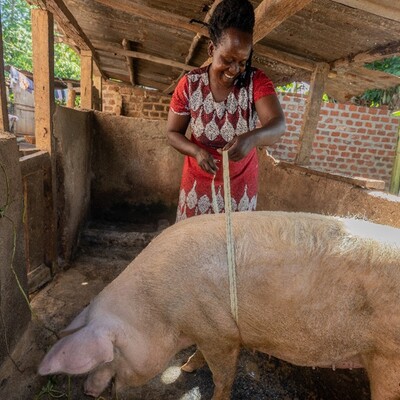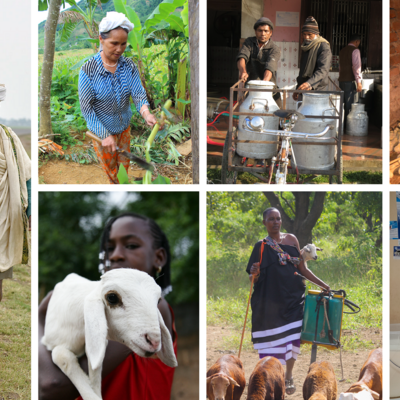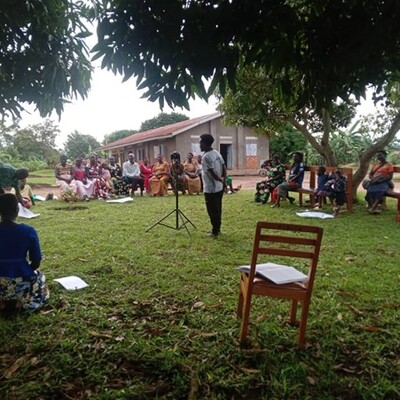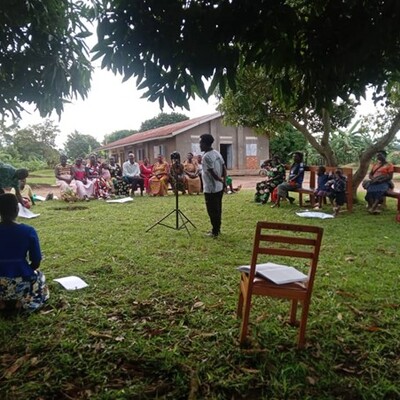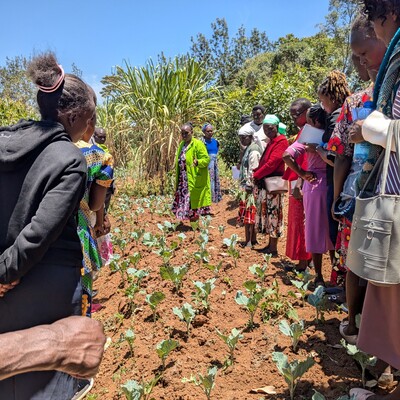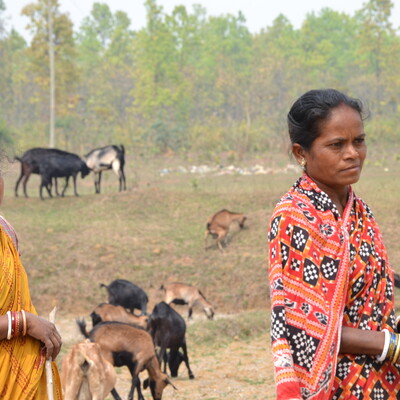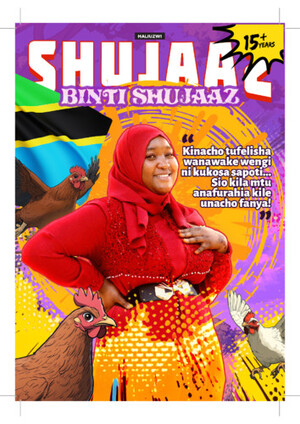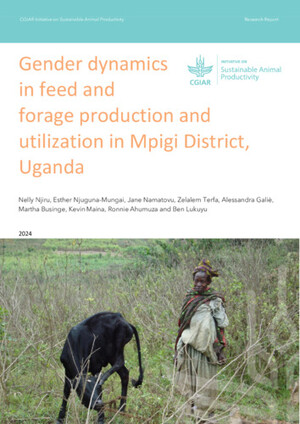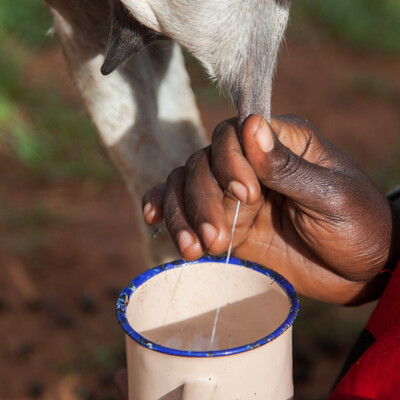
Using gendered assessment to promote sustainable livestock feed management in Dodoma, Tanzania
Feed resource availability, quality, accessibility and seasonal variations significantly affect food and nutritional security in Tanzania. Alongside climate variability, these factors are major determinants of animal health and productivity, and thus the incomes of farmers.
As part of measures to optimize feed use and animal productivity to improve farm yields and revenues, the International Livestock Research Institute (ILRI) has started a comprehensive animal feed assessment and inventory training program for smallholder livestock keepers Tanzania. This program is targeting academic institutions, government agencies and research centres to strengthen the national agricultural research system's capacity to effectively address feed resource challenges and improve food and nutritional security. The work focuses on:
- Identifying the challenges and ways of tackling feed-related issues effectively at community and national levels.
- Assessing NARS and stakeholders’ capacity to examine these challenges and design appropriate interventions.
On 6–10 May 2024, 12 trainees attended the Gendered Feed Assessment Tool (G-FEAST) training conducted in Dodoma. G-FEAST is the gendered version of the Feed Assessment Tool (FEAST), which was developed by ILRI in 2009. Using farmer-centred research tools such as focus group discussions and one-on-one interviews, the tool identifies gender relations that affect animal feeding practices, the uptake of feeding interventions, and differences in opportunities and constraints in animal feeding between different household types.
The training focused on agropastoral communities, with the primary purpose of building the capacity of G-FEAST enumerators and facilitators in Tanzania. They will then use their knowledge and skills to conduct comprehensive feed assessments in various locations in Tanzania, especially ResComm II project sites.
The ‘Enabling a resilient and prosperous community through participatory agroecological practices in the semiarid region of central Tanzania’ (ResComm II) project was launched in April 2024 and is based in Dodoma Region. Implemented by ILRI in collaboration with the Tanzania Agricultural Research Institute (TARI) and other partners, the project is using community-based agroecological approaches to improve food and nutritional security.
Ben Lukuyu, ILRI Uganda country representative, who leads the institute’s rollout of G-FEAST, facilitated the training. The dynamic group of participants included graduate students from Sokoine University of Agriculture, who brought fresh academic perspectives and enthusiasm, and staff from the Ministry of Livestock and Fisheries, who provided governmental insights and policy-related experience. Representatives from the Tanzania Livestock Research Institute (TALIRI) and ILRI Tanzania contributed their extensive research expertise.
By blending theoretical instruction with practical application, the training ensured that participants not only learned about G-FEAST but also developed the confidence and skills to apply this tool in their work. This comprehensive approach is fundamental in building the capacity of G-FEAST enumerators and facilitators in Tanzania, thus preparing them to address feed assessment challenges effectively.
What next
The G-FEAST training has established a solid foundation for a comprehensive and informed approach to feed assessment in Tanzania. As the participants move into the data collection, analysis and implementation phases of the ResComm II project in Kongwa District, Dodoma Region, G-FEAST is expected to have a positive impact on the agropastoral communities within the project area and beyond.
Participants' voices
The G-FEAST training received high praise from participants. Here are a few of their commendations:
Magreth Mwangama, a graduate of Sokoine University: 'The G-FEAST training gave me a comprehensive understanding of gender dynamics in livestock feeding practices. I plan to incorporate G-FEAST into my master’s program research work on creating gender-responsive livestock feeding strategies that enhance productivity and sustainability while promoting gender equity in rural communities.'
George Fupi, TALIRI research scientist: 'The G-FEAST training equipped me with new techniques to identify livestock problems and effective communication skills to collaborate with farmers on practical solutions. The hands-on, interactive sessions exceeded my expectations and enhanced my understanding of the challenges farmers face in feeding livestock.'
Ben Lukuyu, ILRI country representative, Uganda: ‘The G-FEAST tool is invaluable for capturing the intricate gender dynamics in feed assessment, especially in the face of climate variability and change. Its practical application in Tanzania's ResComm II project marks just the beginning of our efforts. The journey has just begun and the future looks promising.'
We extend our heartfelt gratitude to the donors whose support made this training possible. The training and data collection phases were generously supported by ILRI through the ResComm II and LCSR projects.
See more here: G-FEAST training: Paving the way for sustainable livestock feeding practices in Tanzania
You may also like
Related Publications
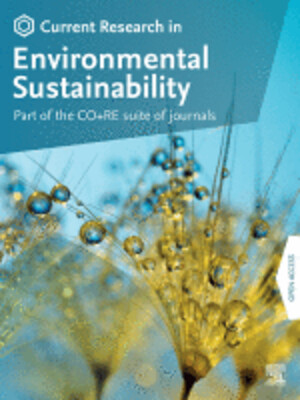
A positive deviance approach to understand gender relations and practices that support transformative adaptation: Insights from Kenya dairy households
- Bullock, Renee
- DuttaGupta, Tanaya
- Miriti, Philip

Gender and antimicrobial resistance: a conceptual framework for researchers working in livestock systems
- Emdin, F.
- Galiè, Alessandra
- Moodley, Arshnee
- Van Katwyk, S.R.
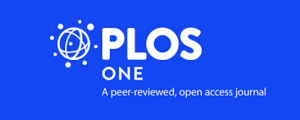
“Without a man’s decision, nothing works”: Building resilience to Rift Valley fever in pastoralist communities in Isiolo Kenya
- Mutambo, Irene N.
- Bett, Bernard K.
- Bukachi, S.A.

Gender considerations in innovation platforms in the livestock sector in Mali
- Gning, S.B.
- Dione, Michel M.
- Sene, M.T.D.
- Sow, Ahmadou
- Fall, Abdou





